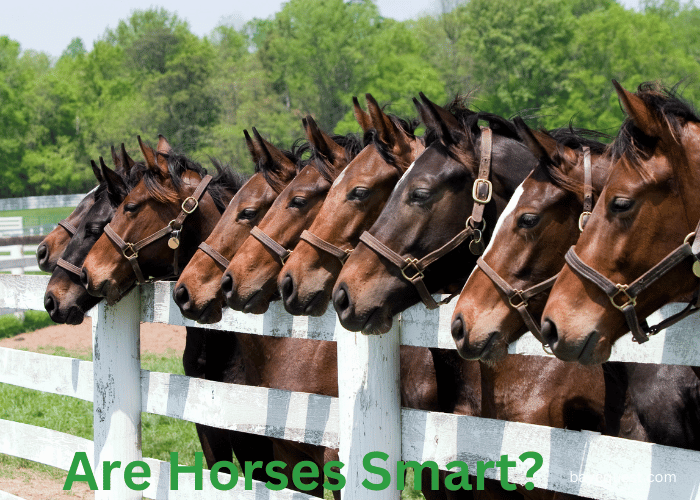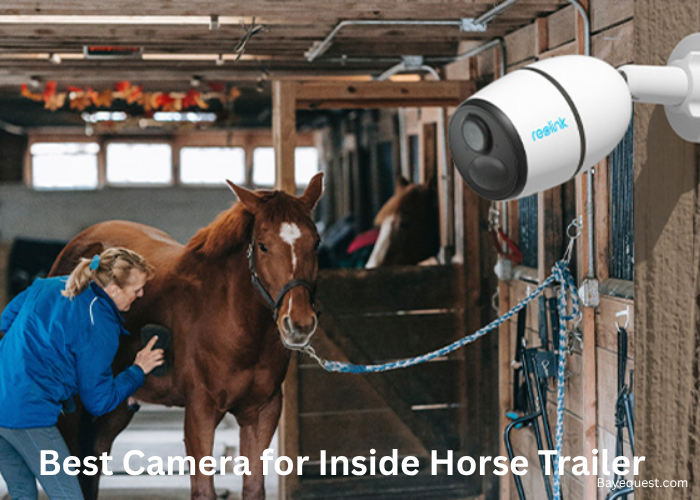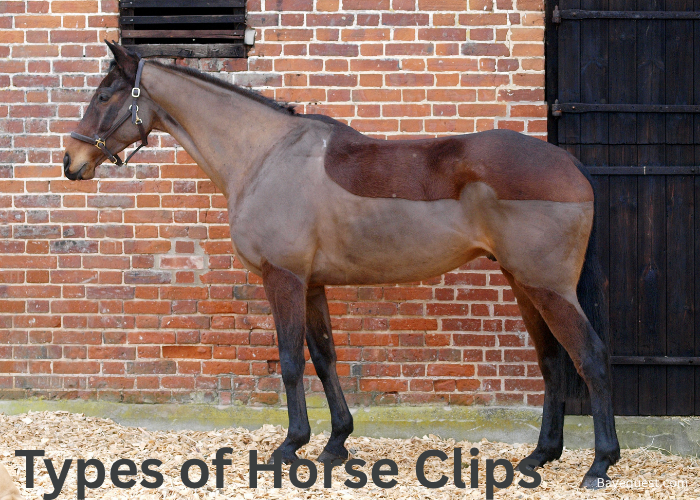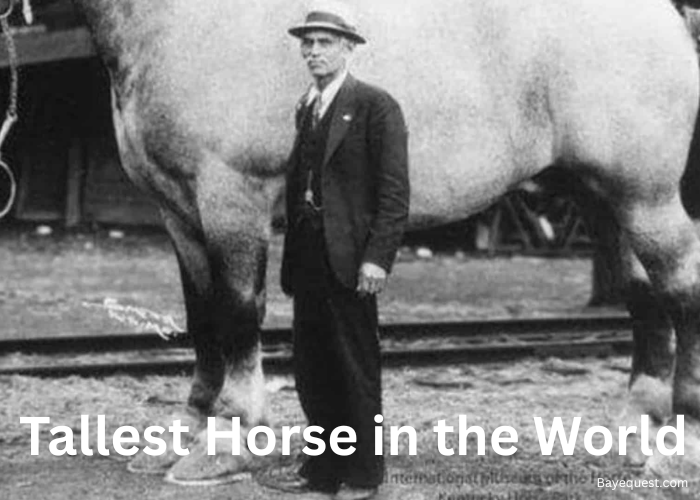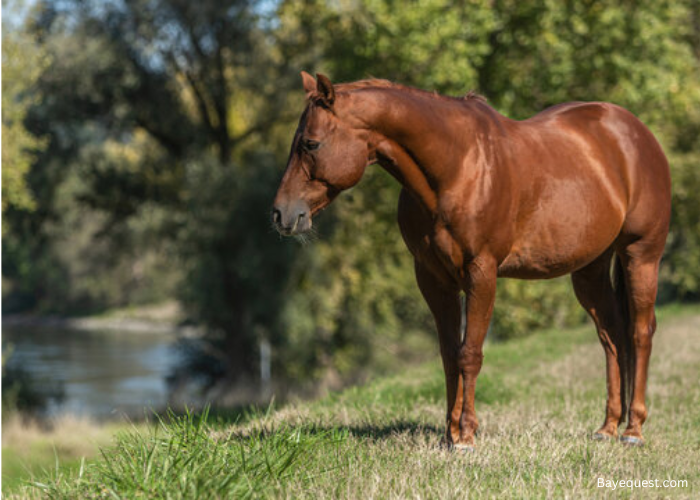Horses have been our companions for thousands of years. But what’s going on behind those big, soulful eyes?
Are they just majestic creatures running wild and free, or is there more to them? Some say they’re smarter than we give them credit for.
They learn, remember, and even solve problems. But how smart are they? Let’s dive into the horse’s mind and find out how clever our hoofed friends might be.
Are Horses Intelligent? Key Takeaway
Horses are intelligent animals due to their problem-solving skills, memory, and social learning abilities. Unlike dogs and cats, horses can adapt, learn commands, and communicate with humans and each other. Their intelligence is evident in their ability to understand human cues and thrive independently and in human care.
Are Horses Smart?
Yes, horses are smart. They have a unique type of intelligence that’s tailored to their environment and social structures. Here’s what makes horses intelligent:
Learning and memory. Horses have excellent memories, which help them remember locations, other horses, and even specific people. They can also learn complex commands and tricks, which is why they’re so trainable for various tasks and sports.
Problem solving. Horses can solve problems, especially those related to their immediate needs like reaching food or navigating obstacles.
Social intelligence. Horses are highly social animals. They live in herds and can read and respond to the emotions and behaviors of other horses. This social awareness also extends to humans.
Emotional intelligence. Horses can sense human emotions and often react to them. This sensitivity is why horses are used in therapeutic settings, such as equine-assisted therapy.
Communication skills. They communicate with each other through vocal sounds, body language, and facial expressions. Understanding these signals is a sign of their cognitive abilities.
How Smart Are Horses?
Horses are pretty smart, more than we might give them credit for. They’re not just fast learners but they’re also great at remembering things for a long time.
This can be really handy when they’re trained for riding or other work; once they learn something, they usually don’t forget it.
Horses are also sharp when it comes to figuring out problems. If you’ve ever seen a horse find its way out of a tricky spot or work out where the gate latch is, you know what I mean. They’re curious creatures and often use this curiosity to solve problems in their environment.
Plus, they’re really good at reading social cues, not just from other horses but from people too. They can pick up on your feelings, which is why they often make great therapy animals. This emotional intelligence shows how deeply horses can connect with others.
So, horses are smart in ways that matter for their lives and roles with humans. They might not do math or read, but they have a kind of intelligence that’s all about being tuned into their world and the creatures living in it with them.
How the Equine Brain Works
While smaller than the human brain relative to body size, the equine brain is specialized and efficient for a horse’s needs. Understanding how it works involves examining its structure and functions and how these relate to a horse’s behavior and abilities.
Structure of the equine brain
The horse’s brain includes several key components: the cerebrum, cerebellum, and brainstem.
The cerebrum handles higher cognitive functions. These include learning and memory and is less folded compared to human brains.
The cerebellum, which is well-developed in horses, manages balance and precise movements. This is essential for a creature whose survival often depends on swift, agile reactions.
The brainstem controls vital bodily functions, including the autonomic processes necessary for life, like breathing and heart rate.
Functional aspects
Sensory processing. Horses have a highly developed sensory system. Their brains are adept at processing visual and auditory inputs, which are crucial for survival. The equine brain can detect slight movements and sounds, alerting them to potential threats.
Flight response. The horse’s brain is wired to prioritize flight over fight, which is evident in its quick response to perceived threats. The limbic system, which deals with emotions and survival instincts, is responsive.
Social cognition. Horses are social creatures, and their brains are equipped to handle complex social interactions. They can recognize and remember other horses and humans and understand social hierarchies within their groups.
Learning and memory. Horses exhibit both classical and operant conditioning abilities. They can learn from consequences and form positive and negative associations with people, places, and experiences. Their long-term memory is particularly strong, especially for places and learning tasks.
Emotional intelligence. The equine brain can process emotions, which is why horses are sensitive to the emotional state of other horses and humans. This ability makes them suitable for therapeutic roles, as they can effectively connect with and respond to human emotions.
Understanding Animal Intelligence
Understanding animal intelligence is about seeing how different creatures interact with their world. Each animal has its own way of thinking and solving problems, tailored to their specific needs and environments.
When we talk about animal intelligence, we often think about memory, learning from experiences, and how animals solve problems.
It’s not just about how much they know but how they apply what they know. For example, a crow might figure out how to use a tool to get food, or a dog might learn a series of commands.
But intelligence isn’t just about solving puzzles; it also involves social skills. Many animals live in groups, and being able to work within these social structures is a sign of intelligence, too.
Emotions play a big part as well. Some animals can sense how others around them are feeling, which helps them get along better with their group or know when to avoid danger. This emotional intelligence is key for building relationships and even for survival.
Understanding animal intelligence gives us a window into the diverse ways animals thrive in their worlds. It helps us appreciate the clever things they do and how deeply they feel and connect with each other.
How Animal Intelligence is Measured
Measuring animal intelligence is a complex and fascinating study area involving various methods and criteria. They include:
Mirror-self recognition (MSR) Test
The MSR Test is designed to assess whether an animal possesses self-awareness, a key component of higher cognitive functioning.
In this test, researchers place a mark on an animal in a place that can only be seen with the aid of a mirror. The animal is then exposed to a mirror and observed to see if it notices and investigates the mark on its body.
This indicates that it recognizes the reflection as its own rather than seeing another animal. The process includes:
Preparation. An animal is marked with a non-irritating dye or sticker on the part of the body that is not visible without a mirror.
Introduction to the mirror. Initially, the animal’s reactions to the mirror are observed to note basic responses.
Mark test. After the animal becomes accustomed to the mirror, its behavior is closely watched to see if it touches or investigates the mark.
The pointing test
The Pointing Test evaluates an animal’s ability to understand gestures, such as pointing. This test is significant for assessing social cognition and the ability to interpret others’ intentions.
It is commonly used in domestic animals like dogs. It includes steps like:
Setup. An experimenter presents two opaque containers; one contains food, and the other is empty. The correct container (with food) is indicated by pointing or looking towards it.
Execution. The animal is then released to choose a container. The test measures whether the animal can infer that the human gesture is an attempt to communicate the location of the food.
Assessment. Success in this test suggests that the animal can understand the communicative intent behind human gestures.
Facts About Horse Intelligence
Horses are intelligent animals, and here are some cool facts that show just how smart they are:
1. Horses have an excellent memory. They can remember places, other horses, and even people for years. If you’ve ever wondered whether a horse remembers you, chances are, it does.
2. Horses are great problem solvers. They can figure out how to open gates, reach out-of-reach food, and navigate complex paths. This ability helps them adapt to new situations quickly.
3. Horses learn fast and effectively. They respond well to training and can follow both verbal commands and physical cues. This makes them versatile in many different roles, from farm work to competitive sports.
4. Horses are sensitive to the emotions of others around them. They can pick up on a person’s mood and often react to it. This emotional awareness makes them excellent companions and therapy animals.
5. In the wild, horses live in herds and have complex social structures. They communicate with each other using horse body language, vocal sounds, and even facial expressions. Understanding these signals is crucial for their survival.
6. Horses not only recognize other horses and humans, but they can also learn and remember different shapes, colors, and patterns. This skill is often demonstrated in training and obstacle courses.
Related read: Interesting and Fun Facts About Horses.
Advanced Cognitive Skills in Horses
Horses display some pretty impressive cognitive skills that might surprise you. These advanced abilities show just how smart they really are. Let’s break down a few of these skills to better understand how horses think and learn.
First up, horses have great memories. They can remember other horses and people for years, even after brief interactions.
This isn’t just about recognizing faces. It’s about remembering experiences with those individuals. So, if you’ve met a horse once and treated it well, chances are it will remember you the next time you meet.
Another advanced skill horses have is their ability to understand and respond to human emotions. Horses can pick up on how a person is feeling and often adjust their behavior accordingly, whether calm, nervous, or anything in between.
This sensitivity is why horses are so effective in therapeutic settings. They help people heal because they can connect on an emotional level.
Horses are also problem solvers. They can figure out complex problems in their environment, like how to open a gate or get to food that’s out of reach.
Lastly, horses are capable of learning through observation. They watch other horses, and even people learn new behaviors without having to do them firsthand.
This shows a high level of social learning and intelligence, as they can ‘copy and paste’ actions from others into their own repertoire.
These skills show just how cognitively advanced horses are. They’re not just reacting to the world around them; they’re constantly thinking, remembering, and learning.
Horses Problem Solving Ability
Horses have a remarkable ability to solve problems. This skill is key for their survival and helps them handle many challenges. It shows just how smart they really are.
Horses often figure out how to manipulate their environment. For instance, they learn to open gates or unlatch stalls by watching how these mechanisms work. This shows they understand their surroundings and can use this knowledge practically.
They are also skilled at overcoming physical obstacles. They will investigate and find another way if their usual path is blocked.
This ability to reassess and adapt shows that horses can think flexibly. They make decisions based on what’s happening around them, which is a sign of advanced thinking.
Horses learn well from their past experiences, which is crucial for problem-solving. They remember how they solved problems before.
If something worked well in the past, they are likely to use that solution again. This shows they can learn from the past and predict future outcomes based on those experiences.
When faced with new challenges, horses often try different approaches until they find one that works. This trial-and-error method shows their persistence and creativity in solving problems.
Overall, horses’ problem-solving abilities prove their intelligence and adaptability. These skills are vital for dealing with their natural surroundings and human-made environments. They also show just how deeply horses can think and innovate.
Horses Training and Behavioral Adaptability
Training horses is all about tapping into their natural smarts and adaptability. Horses can learn a wide range of tasks, from simple commands to complex routines, and this flexibility is key in their training.
Horses respond well to positive reinforcement. This means they learn faster when rewarded for good behavior.
This could be a treat, a pat, or kind words. They remember what behavior earned them rewards and repeat it to get more.
Behavioral adaptability is another big part of their intelligence. Horses can adjust their behavior based on what’s happening around them.
If the environment changes, they can change their behavior to fit in. This makes them great partners in different settings, whether on a trail ride or in a show ring.
Trainers often use a horse’s natural curiosity and willingness to learn. They introduce new tasks in a way that feels like a natural challenge. Horses enjoy figuring things out, which keeps them engaged and eager to learn.
Overall, the success in training horses comes from working with their natural behaviors, not against them.
Are Horses Capable of Complex Communication?
Yes, horses are capable of complex communication.
They convey messages using a combination of vocalizations, body language, and facial expressions. This communication allows them to express emotions, establish social hierarchies, and coordinate group movements.
While their communication may not be intricate, they demonstrate a sophisticated understanding of social dynamics.
How Intelligent Are Horses in Comparison with Other Animals?
| Animal | Intelligence Comparison |
| Dogs | Comparable intelligence to horses. Known for their loyalty, trainability, and ability to understand human emotions. |
| Cats | Generally considered less intelligent than horses and dogs. Display independent behavior but may lack horses’ problem-solving skills and social cognition. |
| Elephants | Highly intelligent animals, often compared to primates. Known for their exceptional memory, complex social structures, and tool use. |
| Pigs | Surprisingly, intelligent animals with cognitive abilities are comparable to dogs. They demonstrate problem-solving skills, social behavior, and emotional awareness. |
| Cows | Display intelligence in social relationships and problem-solving. While not as extensively studied as horses or dogs, they show cognitive abilities and can form strong bonds with humans. |
| Donkeys | Intelligent animals with problem-solving skills and strong social bonds. While not as commonly trained as horses, they exhibit similar cognitive abilities and emotional intelligence. (See also: Are Donkeys Smarter Than Horses?) |
Horse Intelligence vs. Human Intelligence
Horse intelligence is different from human intelligence. While humans excel in complex reasoning and abstract thinking, horses are skilled in tasks related to their survival and social interactions.
Horses have excellent memory and problem-solving abilities. However, their cognitive capacities are more focused on immediate needs and environmental awareness.
Conversely, humans have advanced language skills, creativity, and the ability to plan for the future.
Both species have unique strengths that complement each other.
Implications of Horse Intelligence
Horse intelligence carries significant implications. Their smartness contributes greatly to tasks like agriculture and competitive sports.
Moreover, in therapy, horses offer humans valuable emotional support and comfort.
Appreciating their intelligence enhances our connections with these majestic animals. This underscores the importance of their welfare and well-being in our society.
Horses Intelligence: FAQs
Do horses have a good memory?
Yes, horses have a good memory. They can remember places, other horses, and even people for years. This memory helps them adapt to new situations and learn from past experiences.
Do horses have feelings?
Yes, horses have feelings. They can experience a wide range of emotions, including happiness, fear, sadness, and even jealousy. Their emotions often manifest through their body language and behavior.
Do horses have the ability to love?
Yes, horses have the ability to love. They can form strong bonds with other horses and humans, which may resemble love in some ways. They show affection, loyalty, and attachment to their companions, indicating a deep emotional connection that is akin to love.
Do horses recognize their owners?
Yes, horses can recognize their owners. They have excellent memory and can remember people they interact with regularly. They may show recognition through behaviors such as approaching their owner, nuzzling, or whinnying upon seeing them.
Are horses emotionally intelligent?
Yes, horses are emotionally intelligent creatures. They can perceive and respond to the emotions of other horses and humans, adjusting their behavior accordingly. Their ability to empathize, form social bonds, and navigate complex social interactions demonstrates their emotional intelligence.
How Smart is a Horse? Conclusion
In conclusion, delving into the world of horse intelligence has been a journey of discovery and fascination. From their remarkable problem-solving skills to their emotional depth and social savvy.
Whether galloping through fields or gently nuzzling us, these majestic creatures remind us of the profound bond between humans and animals.
So next time you find yourself in the presence of a horse, take a moment to appreciate the intelligence and beauty of the horse. Let their spirit ignite your own sense of wonder and connection with the natural world.




